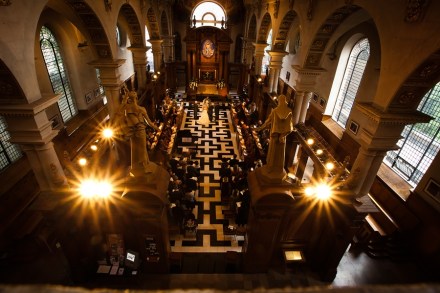The Spectator’s 2013 carol concert: an open invitation
It’s December, advent calendars are on the wall and being prematurely raided (in my house, anyway). And it’s just ten days until the event of month: the Spectator’s carol concert with the amazing choir of St Bride’s. It’s a stunning church but quite a small one: we only have 200 tickets and most have been sold. But there are still a few left, which you can buy online. It’s in aid of Cancer Research UK and a warm invitation is extended to any Coffee Housers who’d like to come and join us. The evening is our own (condensed) lessons and carols – the lessons being read by our own saints:

















